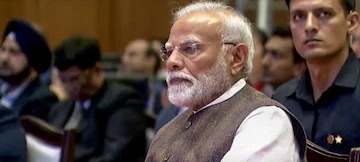In the world of Indian politics, few names have resonated with such global recognition and divisive opinions as that of Prime Minister Narendra Modi. A figure whose leadership has influenced the country in numerous ways, PM Modi has been a subject of intense debate, both for his policies and personal choices. Among the many aspects of his public persona, one that stands out in recent years is his engagement with popular culture, particularly through his endorsement of movies. This aspect of his public life, while often seen as strategic, takes on a different shade when it comes to a documentary like The Sabarmati Report—a project that is deeply personal, touching upon an emotional and historical facet of his life. While PM Modi’s association with film promotions and endorsements has always seemed part of a calculated political strategy—blending nationalism, governance, and cultural connectivity—the release of The Sabarmati Report has brought attention to a different, more intimate side of the Prime Minister. As the nation’s leader, Modi has often used popular culture to promote messages aligned with his government’s policies. However, The Sabarmati Report, which documents his journey from his early years as a RSS pracharak to his tenure as the Chief Minister of Gujarat, carries with it layers of personal history, much deeper than the surface of political endorsements seen in the glitzy world of Bollywood. Over the years, Narendra Modi has adeptly used the power of media, including cinema, to expand his reach and consolidate his image. His public image, as a man of the masses and a beacon of hope for the common people, has been carefully crafted, often aided by Bollywood and other forms of mass entertainment. His connection to the film industry is not a recent development. Long before his ascendancy to national politics, Modi was known to use the media strategically during his tenure as Chief Minister of Gujarat, often projecting himself as the face of modernity and progress. PM Modi’s association with films is often seen in the context of promoting India’s rich cultural heritage and traditional values. He has been vocal about his appreciation for films that reflect national pride, such as the Bajrang Bali and Vikram Vedha franchises, which underscore bravery and righteousness. His endorsements have ranged from appearing in promotional campaigns for popular films to directly connecting with filmmakers and actors who share his ideological convictions. It’s no surprise that Modi’s public appearances at events like the International Film Festival in Goa or his meetings with influential film industry personalities like Karan Johar, Amitabh Bachchan, and Akshay Kumar are seen as extensions of his political campaign. These engagements are, in a sense, a tool for political consolidation, aimed at bridging the divide between politics and popular culture. By associating himself with figures that enjoy mass appeal, Modi is able to expand his influence and further cement his position as an influencer in not just politics, but in the cultural sphere as well. From endorsing the PM CARES Fund through the medium of film promotions to his endorsement of various public service initiatives, Modi’s involvement with movies has been closely tied to his vision of a modern, powerful India. Bollywood, with its far-reaching influence, is a natural platform for Modi to communicate his policy agenda, particularly to the younger, urban electorate. In essence, these movie endorsements are strategic: they are a tool to build visibility, public approval, and trust in his leadership.
The post PM Modi’s Movie Endorsements Have A Reason But ‘The Sabarmati Report’ Is Personal first appeared on InfluencersPro.


